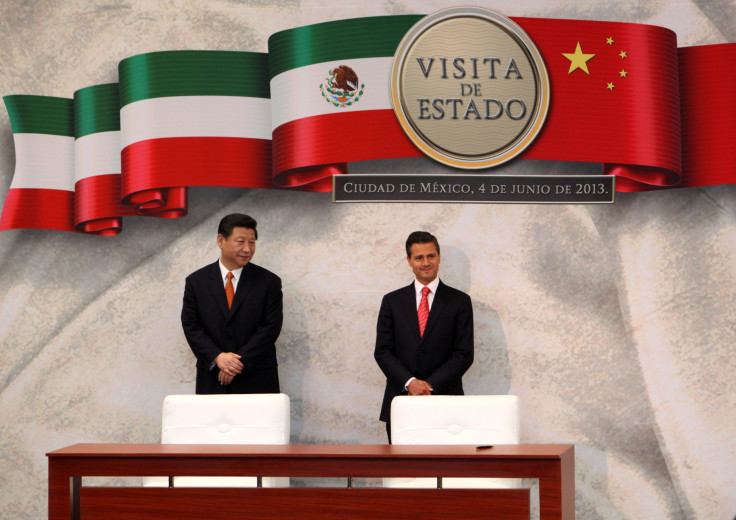
Chinese President Xi Jinping's visit to Mexico culminated in the signing of a series of trade agreements yesterday as Jinping and Mexican President Enrique Peña Nieto promised to leave behind past friction and embark on "a new phase" in their relationship. Among the accords, which span industries like food, energy, mining, tourism, infrastructure and education, is one which will allow Mexico to sell pork and tequila to China. The Chinese president estimated that about $1 billion would change hands because of the "tequila pact".
Two energy deals were struck with Chinese businesses over the sale of boats, equipment and technology to Mexico's oil industry. The general director at Pemex, Mexico's national petroleum company, said that a Chinese import-export bank will extend a billion-dollar line of credit for a renovation program which Mexico wants to undergo on Pemex's oil barges and other offshore equipment.
Jinping said that this year, his country would invite 100 Mexican youths to summer camps on Chinese soil and offer 300 government grants over the next three years to Mexican youths who want to study abroad there. He also indicated that the first Chinese cultural center in all of Latin America and the Caribbean would be established in Mexico.
As China's economy has grown, much of Latin America has benefitted from Chinese demand for commodities. But Mexico's economy has shifted toward manufacturing and away from commodities in recent decades, meaning China's emergence as a factory hub came at the cost of Mexico as maquiladoras picked up shop and headed for China.
RELATED: Marco Rubio Says GOP Will Get Behind Immigration Reform
RELATED: Corona Bought By Belgian Beer Company
RELATED: Colombia, FARC Reach Land Reform Agreement
There's been friction between the two countries over labor practices, too: October 2012 Mexico filed a complaint with the World Trade Organization (WTO) over what it said were unfair practices, including selling products at a below-market rate and giving government subsidies to domestic industries, as well as creating investment groups which paired businessmen with high-level government officials. On Tuesday, Peña Nieto announced the two nations would find an amicable solution to their differences with respect to the litigation through the creation of a group joining officials from both countries in order to review the case. He said that the trade deals would boost Chinese investment in Mexico and help it serve as a platform for the exportation of Chinese products to the United States.
But the accords also appear to reflect a new aggressiveness on the part of Mexico in pursuing its trade interests. Over the past few years, rising wages in China combined with high oil prices have brought many products destined for the United States back to Mexico. Mexico's share of the US import market has risen from 10% to 13% in the past seven years, according to the Wall Street Journal.
Jinping called the nation of Mexico a "good friend and great partner in Latin America", while Peña Nieto went so far as to speak of a "brotherhood" between the two nations.
© 2025 Latin Times. All rights reserved. Do not reproduce without permission.




